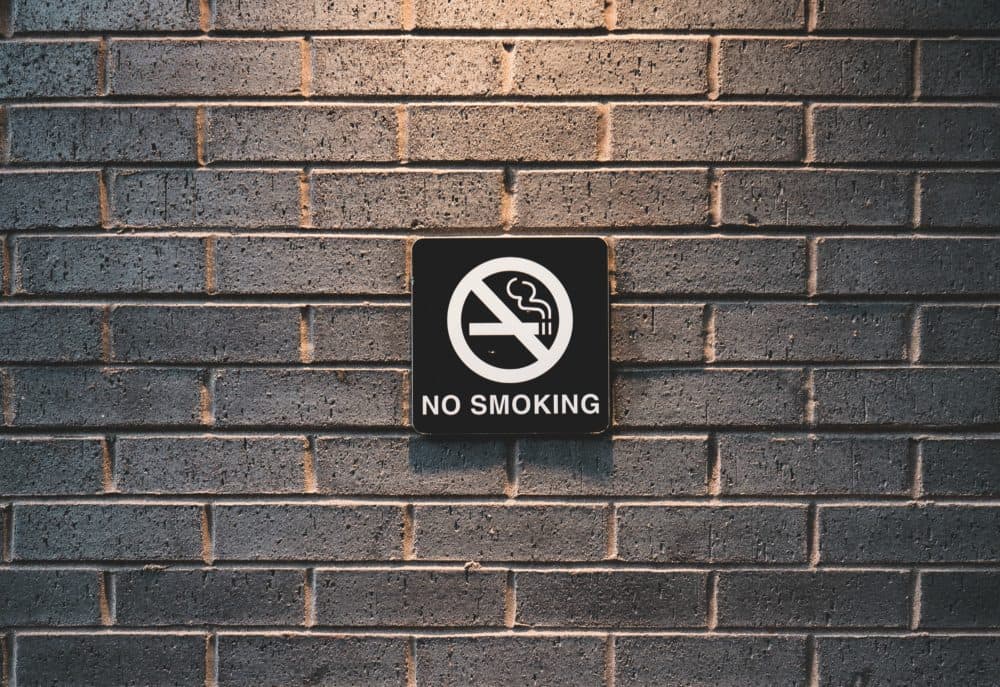Advertisement
Commentary
Could The Strategies That Worked For Tobacco Control Also Work For Gun Reform?

Here we go again.
Last week in California, a school shooter at Santa Clarita’s Saugus High School killed two teenagers and himself. Over the weekend, unidentified shooters snuck into a backyard family football party in Fresno and shot 10 men, killing four. In between, a domestic murder-suicide shooting that killed five family members in San Diego barely made the national news.
Shannon Watts, founder of anti-gun violence organization Moms Demand Action, ritually retweeted all three with her trademark heading, “ANOTHER MASS SHOOTING IN AMERICA.” But most Americans went about their days, horrified by the news if they heard it, but with little faith that another shooting will make a difference in our violent status quo.
Many Americans believe our hopes for gun reform died at Sandy Hook. If the deaths of 20 first graders didn't convince America to change, the line of reasoning goes, nothing will. But Sandy Hook could turn out to have been a turning point, according to Dr. Michael Siegel, professor of Community Health Sciences at Boston University's School of Public Health, who has a radical idea for overcoming the gun control stalemate.
Siegel, the co-author of "Marketing Public Health: Strategies to Promote Social Change," made his name in tobacco control. His research was instrumental in reframing the national conversation about smoking from smokers' rights, which pitched smokers against non-smokers, to public health, which united the American people against Big Tobacco. The result has been one of the most dramatic behavior shifts in American history, as smoking rates declined from 42% in 1965, when the CDC started tracking, to an all-time low of 14% in 2017.
When we spoke recently, Siegel explained that as he watched the post-Sandy Hook stalemate, he began to wonder if the strategies that worked for tobacco control could work for gun control. Like Big Tobacco, Siegel argued, "The NRA has framed the issue at the individual level, as gun owner vs. non-gun owners. They paint it as a highly controversial issue that is basically a question of the Second Amendment versus the desire to reduce gun violence.”

But since Sandy Hook, polls have shown that over 90% of Americans support universal background checks for gun buyers (even as only 12 states have passed such laws and there has been no progress at the federal level). Recognizing that these numbers mean that most gun owners must support background checks, at least in private, Siegel set out “to understand and develop a respect for gun culture." He started going to gun stores and talking to their proprietors. He read gun catalogs. He went to a shooting range, got safety training, shot a gun for the first time and talked to gun owners.
Siegel’s explorations confirmed what the data suggests. The vast majority of gun owners never use a gun to hurt another person, and most want strict safety and purchase regulations as much as any gun reform advocate.
However, by framing guns — and by extension gun owners — as the problem, the gun control movement has taken the people who know the most about guns and have the greatest investment in making them safe out of the conversation.
“When you ask gun owners privately, they support gun control laws, but they never speak publicly,” Siegel said. “What’s causing the problem is that you’ve got a population of people that don’t feel respected, don’t feel their culture is being respected, feel like everyone else is out to get them and thinks they are the problem. Gun owners are not able to engage in gun violence prevention because they feel alienated.”
So, what alienates gun owners?
For one thing, elements of the gun reform policy agenda that appeal to public emotion, but mean little to those who understand guns, like the focus on banning assault weapons (which sound terrifying, but have mainly cosmetic differences from other guns), when what actually makes a gun more dangerous is the size of its magazine.
For another, heavy-handed efforts to ban guns across the board, for instance by eliminating school and camp riflery programs.
Meanwhile, the NRA's obsessive focus on Second Amendment rights (much like Big Tobacco's focus on smokers' rights) has capitalized on this sense of alienation to shape the national gun conversation into Americans vs. Americans, rather than Americans vs. the gun companies that fund the NRA and are, like Big Tobacco, more interested in their own profits than their customers’ rights or the needs of the American people.
... by framing guns -- and by extension gun owners -- as the problem, the gun control movement has taken the people who know the most about guns and have the greatest investment in making them safe out of the conversation.
What’s Siegel’s alternative?
“My approach,” he said, “is to respect gun owners and gun culture, bring them in, and figure out ways to make them feel comfortable and help solve the problem. Three things come of that. One, we get the knowledge we need, because they understand guns and can help us figure out what to do about them. Two, we dispel the idea that this is gun owners against non-gun owners. Three, we reframe the issue so that it is the public working together to protect our safety.”
As part of this effort, Siegel's current research, funded by the Robert Wood Johnson Foundation's Evidence for Action program, is looking at what guns mean to gun owners.
What does this mean in practice?
Siegel highlighted the NRA’s focus on mental health as the primary factor in gun violence. Guess what? It’s not.
“In most cases of shootings, including mass shootings, there is usually a history of violence or violent threats, usually in the setting of domestic violence," he pointed out. "If we passed laws — and rigorously enforced them — that anyone who commits domestic violence can’t have a gun, there would be a great reduction.”
Isn’t that something we can all agree on?
If gun owners and non-gun owners can come to understand each other and unite on behalf of public health and the public's right to safety, America has a hope of overcoming our current epidemic of gun violence. If anyone can help make that happen, it’s Michael Siegel.
